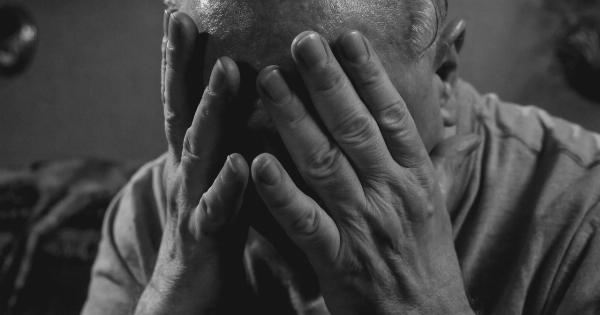Sexual desire and interest in sexual activities can vary greatly among individuals. While it is considered normal for one’s libido to fluctuate over time, a complete loss of interest in sex can be concerning for some individuals.
There can be various factors contributing to a decreased or nonexistent interest in sex, both physical and psychological. In this article, we will explore some of the potential reasons behind why someone might not be interested in sex anymore.
1. Relationship Issues
One of the most common factors contributing to a decrease in sexual desire is relationship problems.
Difficulties such as unresolved conflicts, lack of emotional intimacy, or an overall decline in relationship satisfaction can all have a significant impact on one’s interest in sex. It is crucial for partners to communicate openly and address these issues to maintain a healthy sexual relationship.
2. Stress and Fatigue
Life stressors, such as work pressures, financial worries, or caregiving responsibilities, can drain one’s energy levels and leave little room for sexual desire.
Fatigue can also have a direct impact on physical functioning, making sexual activity feel less appealing. Taking steps to manage stress, getting enough rest, and engaging in self-care practices can help alleviate these factors.
3. Hormonal Changes
Hormonal changes can significantly affect one’s sexual desire. Fluctuations in hormone levels, particularly during menopause or andropause, can lead to a decreased interest in sex.
Additionally, hormonal imbalances caused by certain medical conditions or medications can have a similar impact. Consulting with a healthcare professional can help identify and address any underlying hormonal issues.
4. Mental Health Conditions
Several mental health conditions can impact one’s sex drive. Conditions such as depression, anxiety, and chronic stress can diminish overall interest in sexual activities.
The psychological and emotional toll of these conditions may cause a person to withdraw from intimate encounters. Seeking therapy or counseling from a mental health professional can help manage these factors.
5. Medications
Certain medications, including antidepressants, antipsychotics, and blood pressure medications, can have side effects that dampen sexual interest or impair sexual functioning.
If you suspect that your medications might be affecting your libido, consult with your doctor to explore alternative options or potential solutions.
6. Aging
As individuals age, their bodies go through natural physiological changes, which may affect sexual desire. Hormone levels tend to decrease, and physical changes can impact sexual functioning.
Open communication with a partner to explore new ways of being intimate and maintaining a fulfilling sexual relationship can help navigate these changes.
7. Body Image and Self-esteem
A negative body image or low self-esteem can significantly impact sexual desire. Feelings of self-consciousness or a lack of confidence in one’s physical appearance can hinder someone’s willingness to engage in sexual activities.
Working on self-acceptance, body positivity, and cultivating a healthy self-image can help improve sexual interest and enjoyment.
8. Lack of Sexual Communication
Effective communication about sexual desires and needs is vital for maintaining a satisfying sex life. If partners are not openly discussing their preferences or if communication is lacking overall, it can lead to a decline in sexual interest.
Engaging in honest and open conversations about desires and boundaries can help rekindle interest in sex.
9. Traumatic Experiences
Experiencing trauma, such as sexual abuse or assault, can have long-lasting effects on one’s sexual desire and overall sexual well-being. These traumatic experiences can result in feelings of fear, anxiety, and even guilt associated with sex.
Seeking therapy from a qualified professional who specializes in trauma can play a crucial role in healing and rebuilding a healthy sex life.
10. Lack of Variety and Novelty
Engaging in the same sexual routines repetitively can lead to a decline in interest over time. Humans naturally seek novelty and variety, and this applies to sexual experiences as well.
Introducing new activities, exploring fantasies, or experimenting with different techniques can reignite the flame of desire and make sex more appealing.
In conclusion, a loss of interest in sex can stem from various factors, including relationship issues, stress, hormonal changes, mental health conditions, medications, aging, body image concerns, lack of sexual communication, traumatic experiences, or a lack of variety in sexual activities. It is important to address and explore these factors in order to maintain a fulfilling and satisfying sex life. Consulting with healthcare professionals, therapists, or counselors can provide guidance and support while navigating these challenges.


























